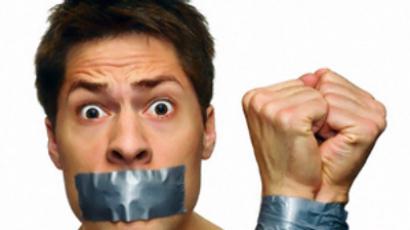Digital Bill to strip Britons of their rights
Britain is hoping to put itself at the forefront of the fight against Internet piracy with the new Digital Economy Bill, to be debated in parliament later on Tuesday.
The bill will give authorities the power to block pirate websites and cut off people from the Internet if caught file sharing.
The bill is going to be rushed through at the end of a session when the British Parliament is practically “dead” for practical purposes, at high speed,
The Open Rights Group says the bill also takes advantage of the “wash-up” – the period between the elections being called and the Parliament being dissolved.
The executive director of the Open Rights Group, Jim Killock, revealed that “The bill will be passed through in roughly 45 minutes, through a sort of rushed procedure called the wash-up. This is utterly undemocratic,” he said, “not having the debate in public.”
The bill, which includes disconnecting people from the Internet without due process, will be less about the brave new 21st Century digital world and more about protecting the old 20th Century business models used in the music and film industries, and some say it threatens the nationwide Internet connectivity it is supposed to be promoting.
If anyone in your house or even on your street uses the Internet for music downloads, you may face a cut in your Internet connection speed or a complete cut-off from the web. The same could happen to places with public Wi-Fi connections like pubs and restaurants.
Certain changes have been made to the bill, though, including one saying the public will have to be consulted before the government blocks websites providing pirated music and videos, but protesters say “consulted” does not automatically mean “listened to”, so there is no substitute for proper debate.
Austin Mitchell, a British MOP representing the Labour Party told RT that while the bill on Internet copyright is still in proceeding, it is already clear that it would protect the interests of big businesses and suppress a relatively small group of enthusiasts who exchange music and video files among themselves. The MP compared the bill to a sledgehammer used to smash a small knot. Besides this, he said that the present draft is unjust to those who become involved in Internet piracy against their will, as many sites do not clearly indicate that they distribute the content in violation of copyright laws.













